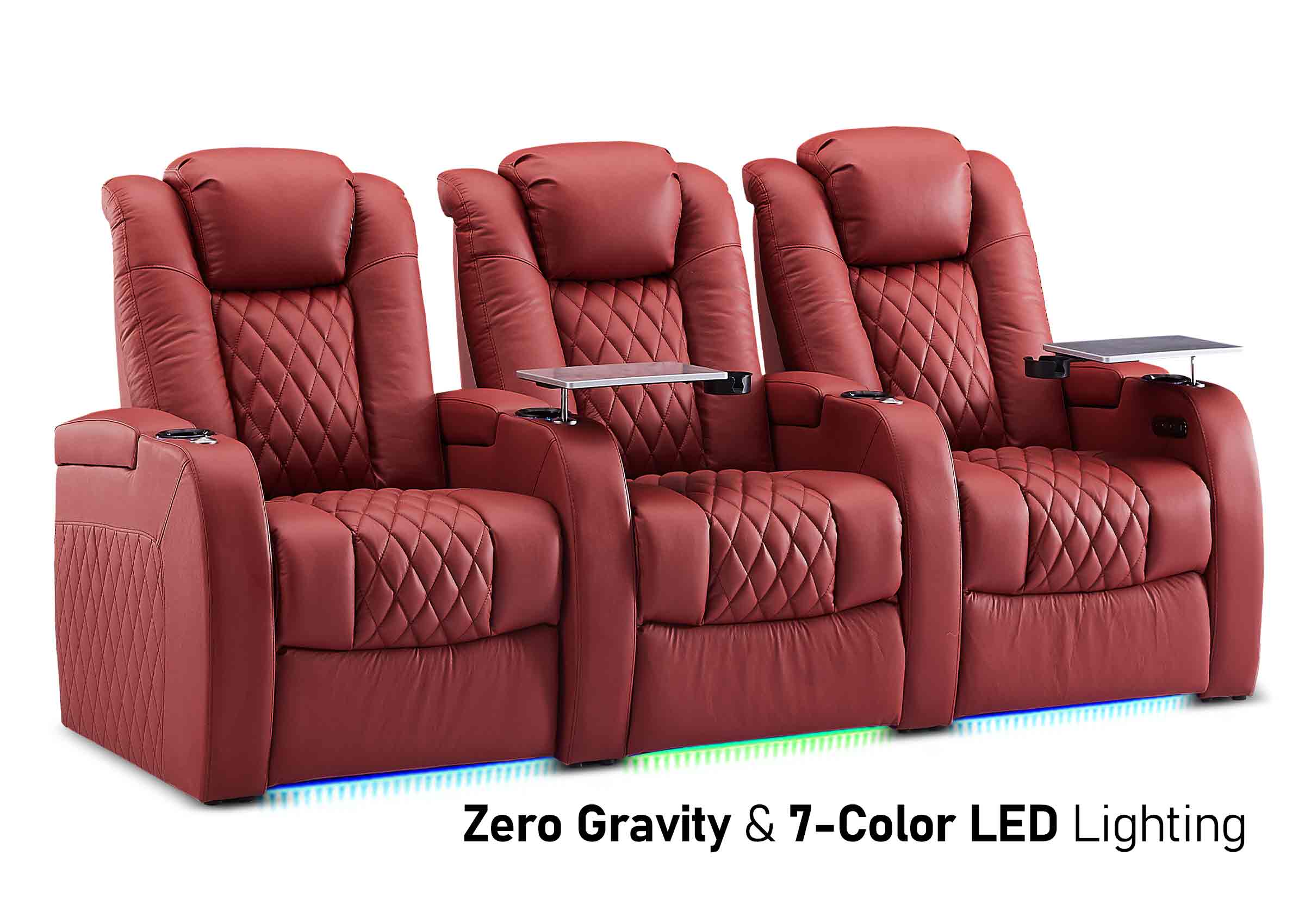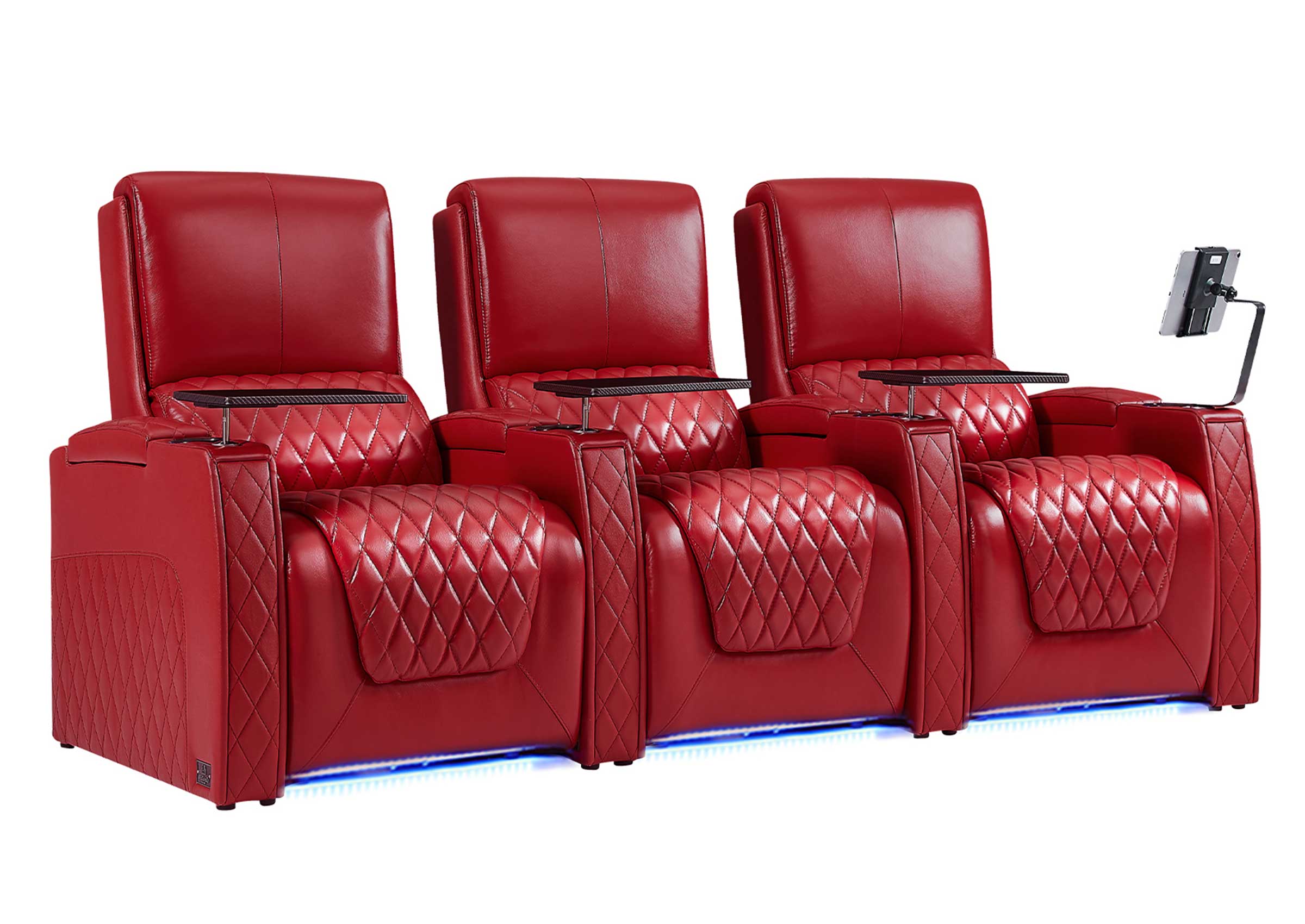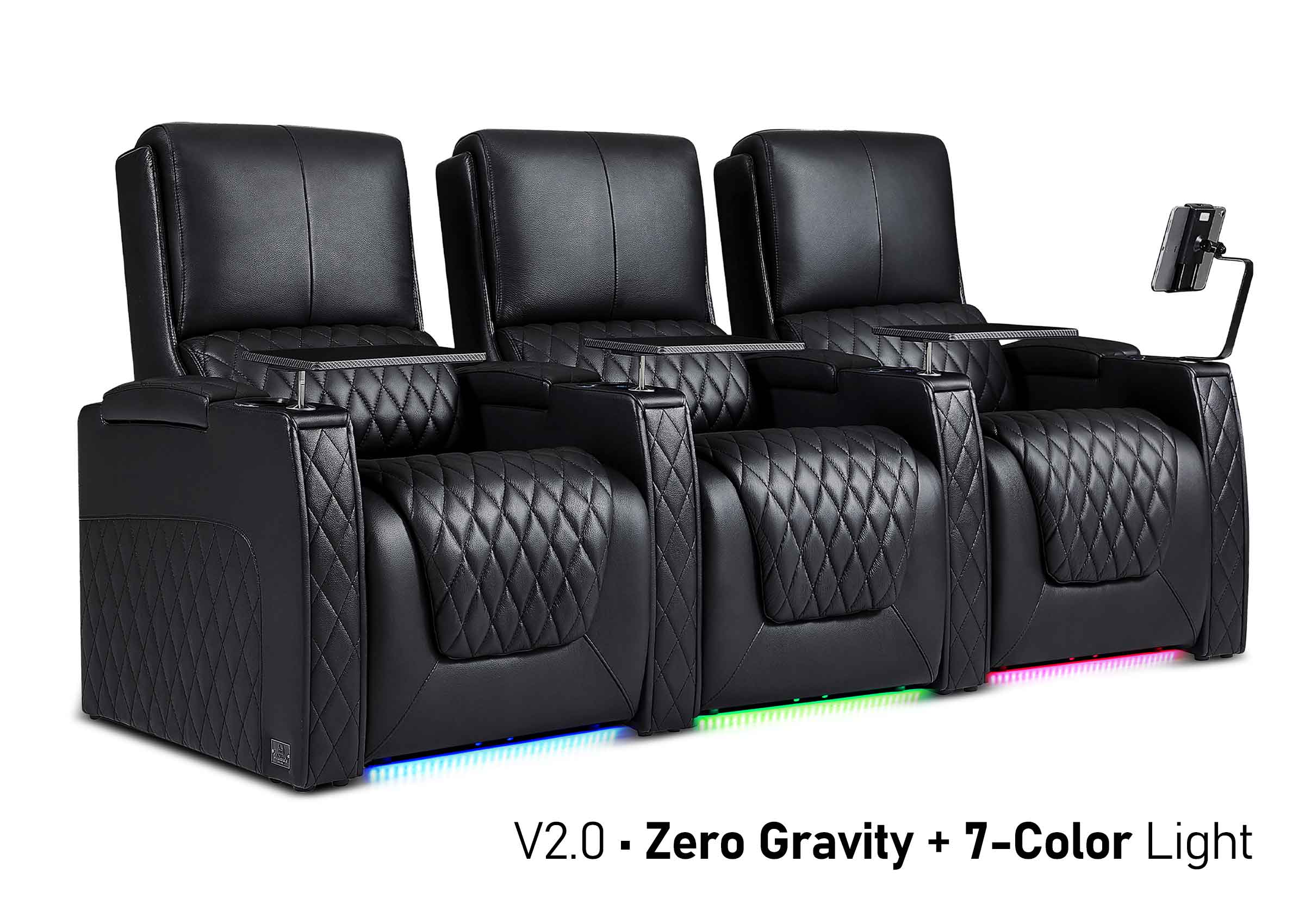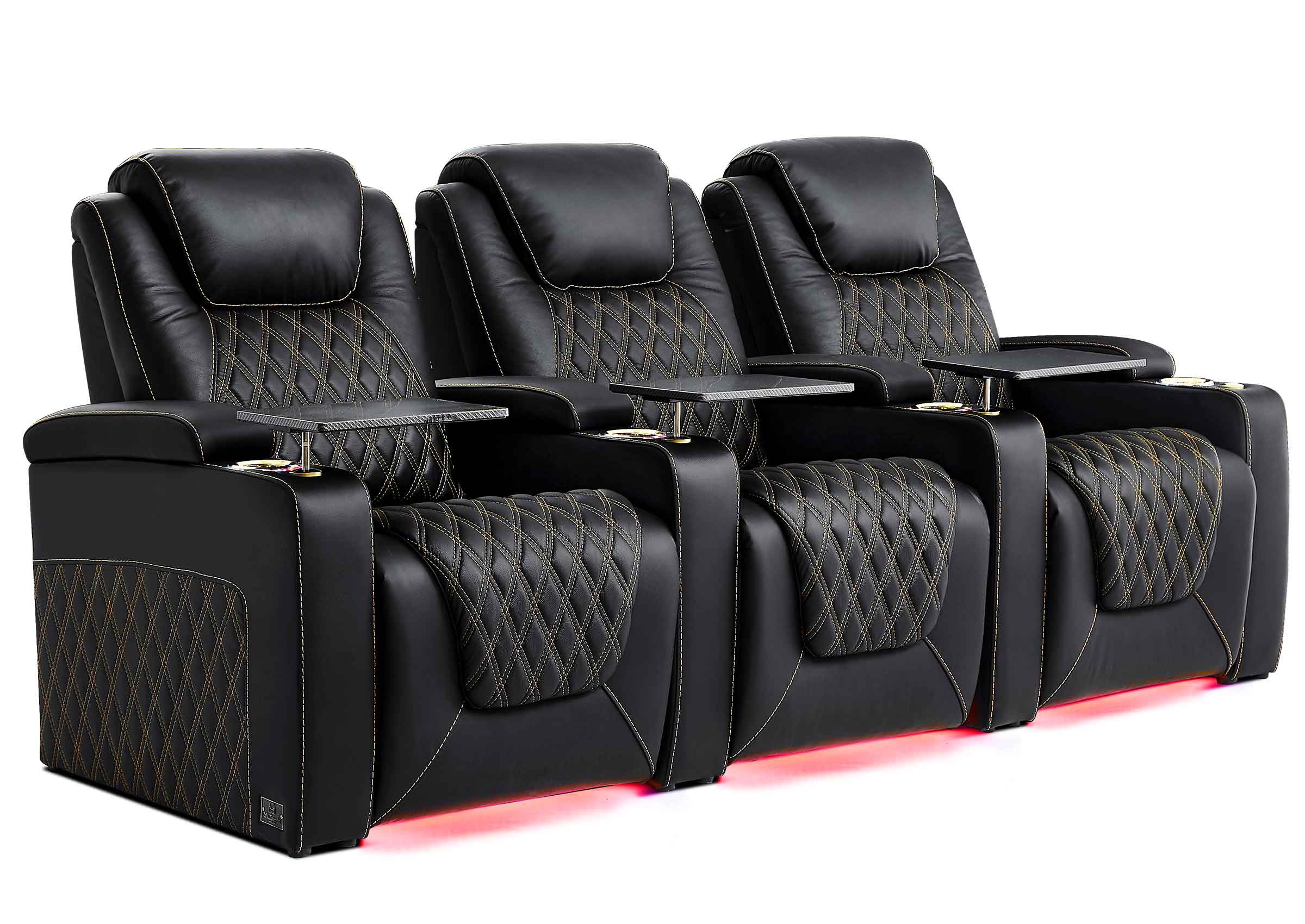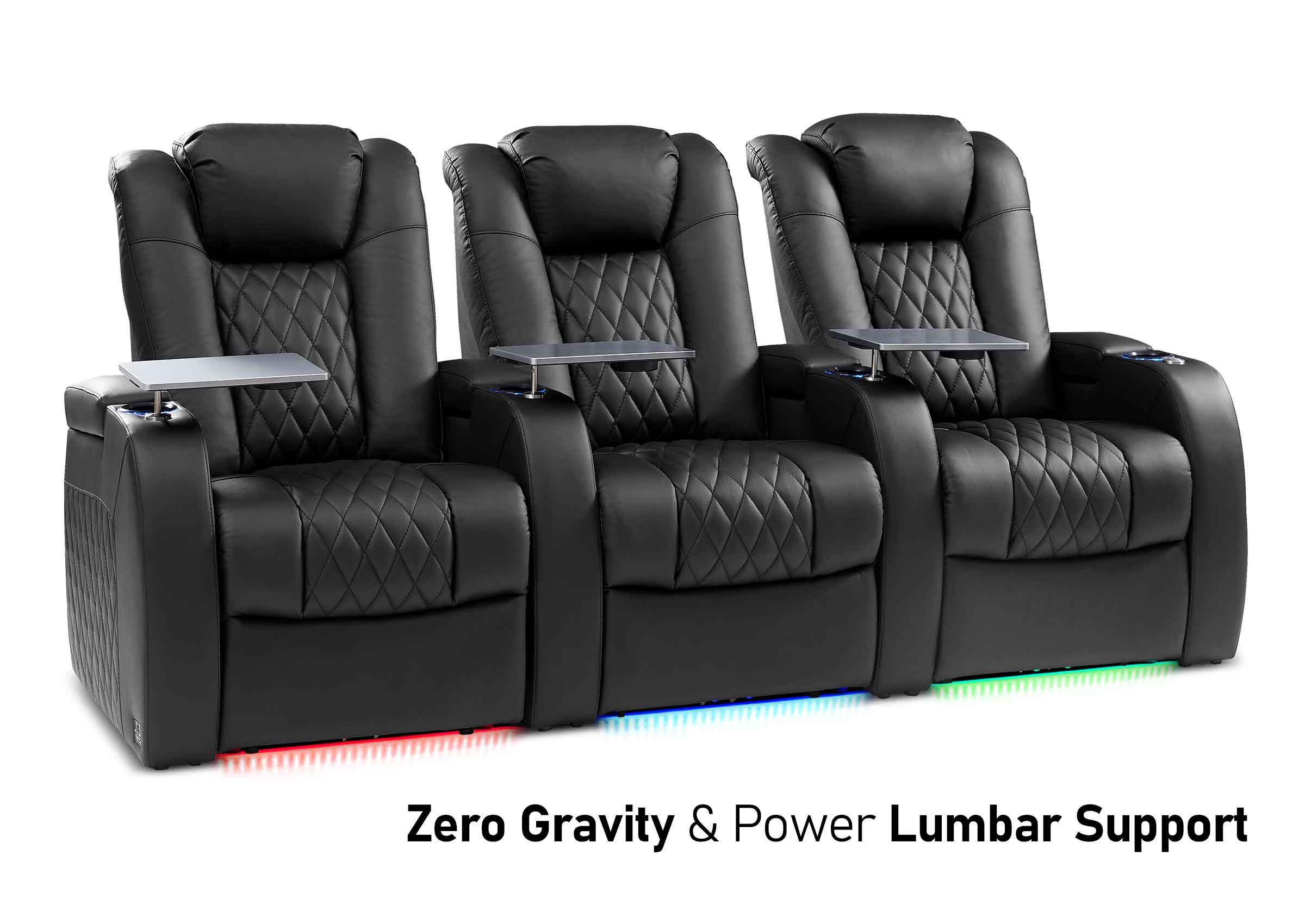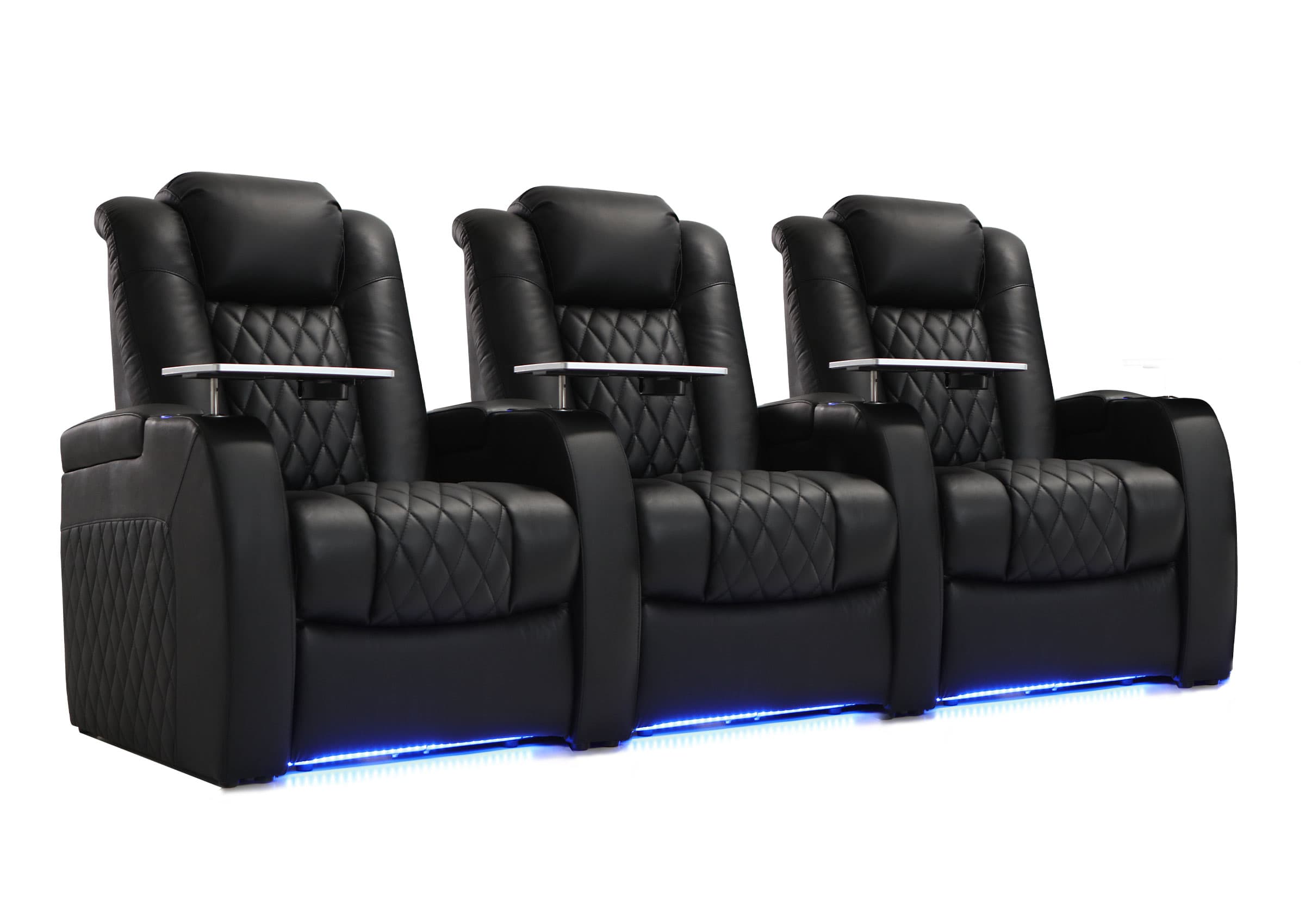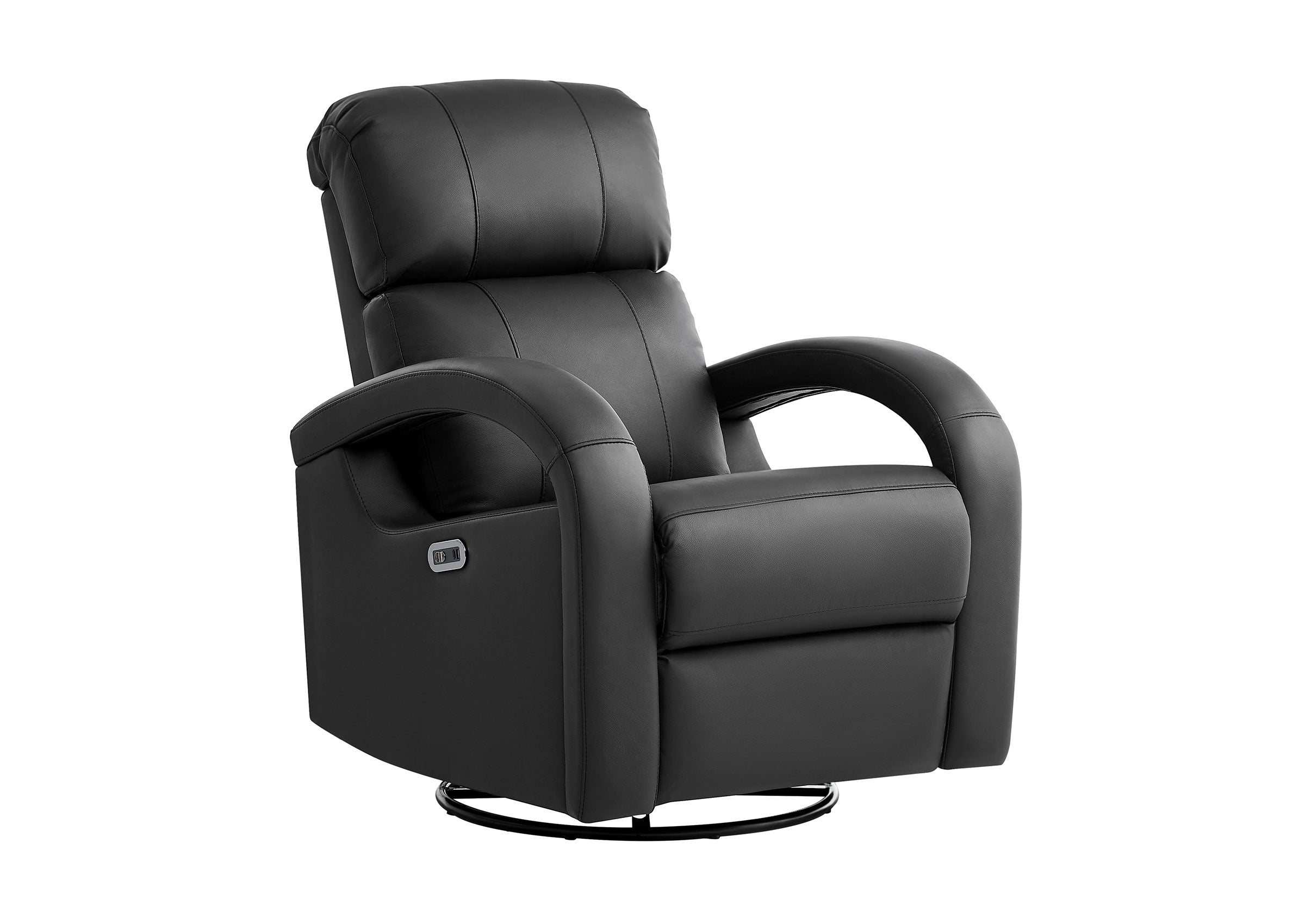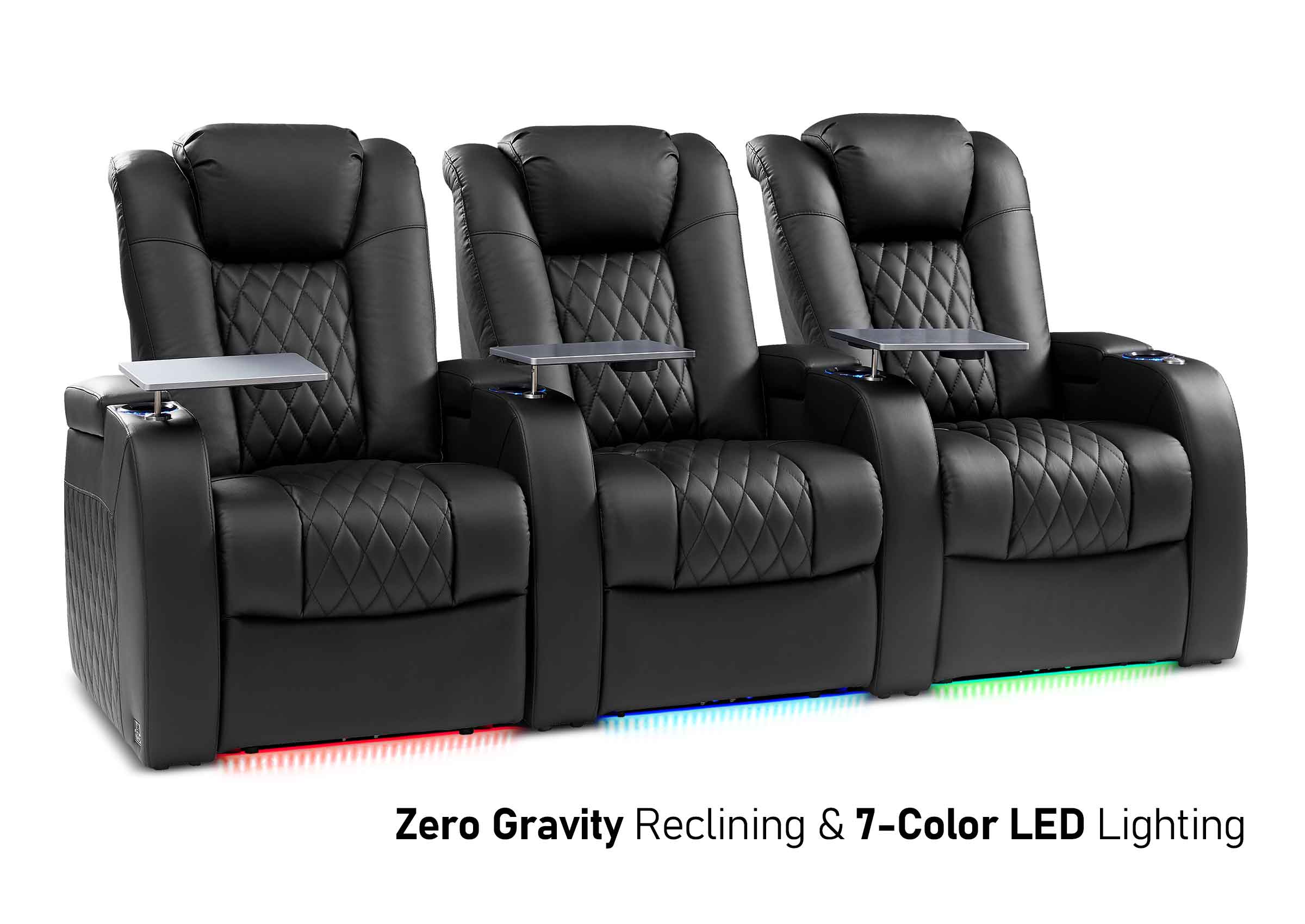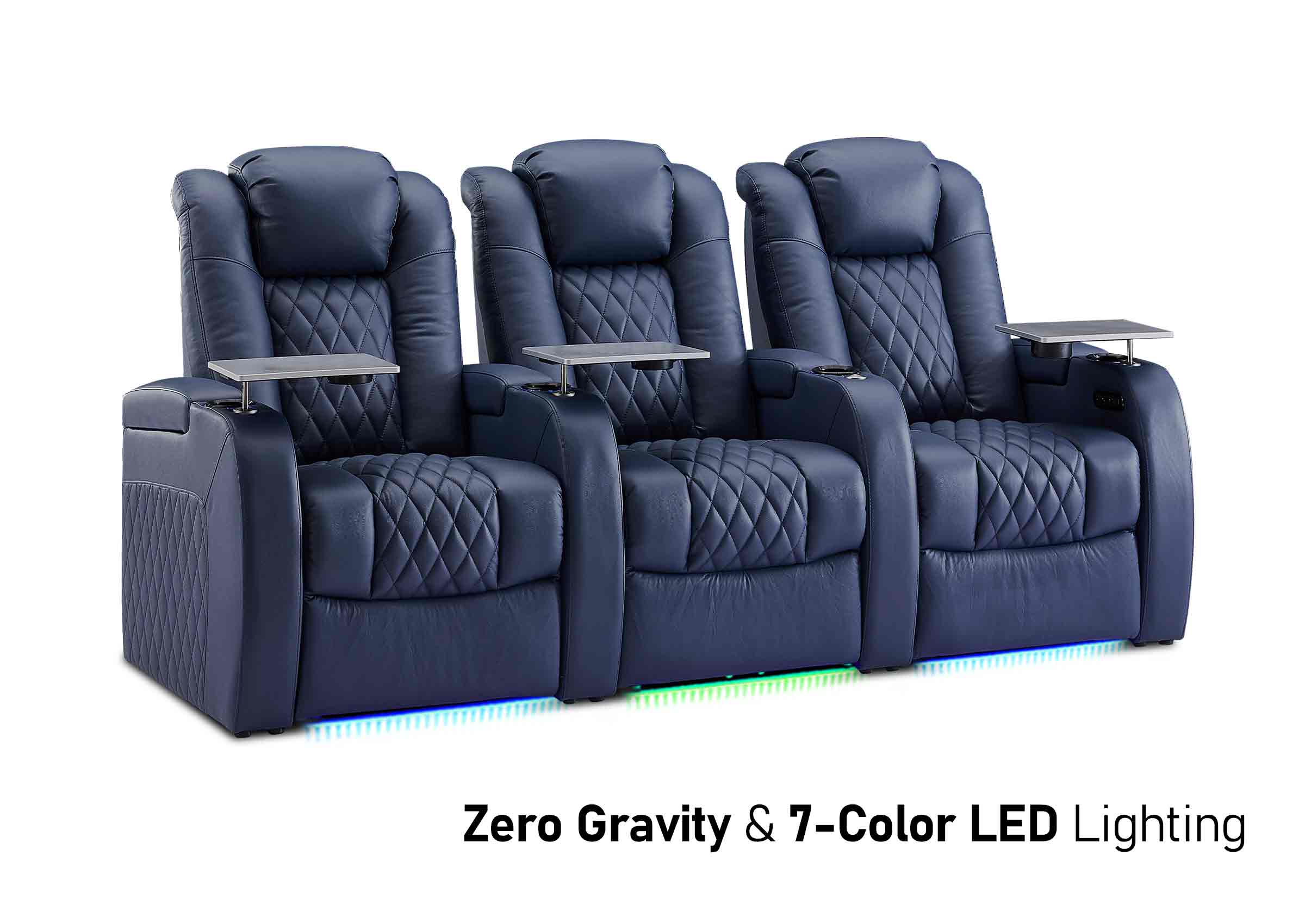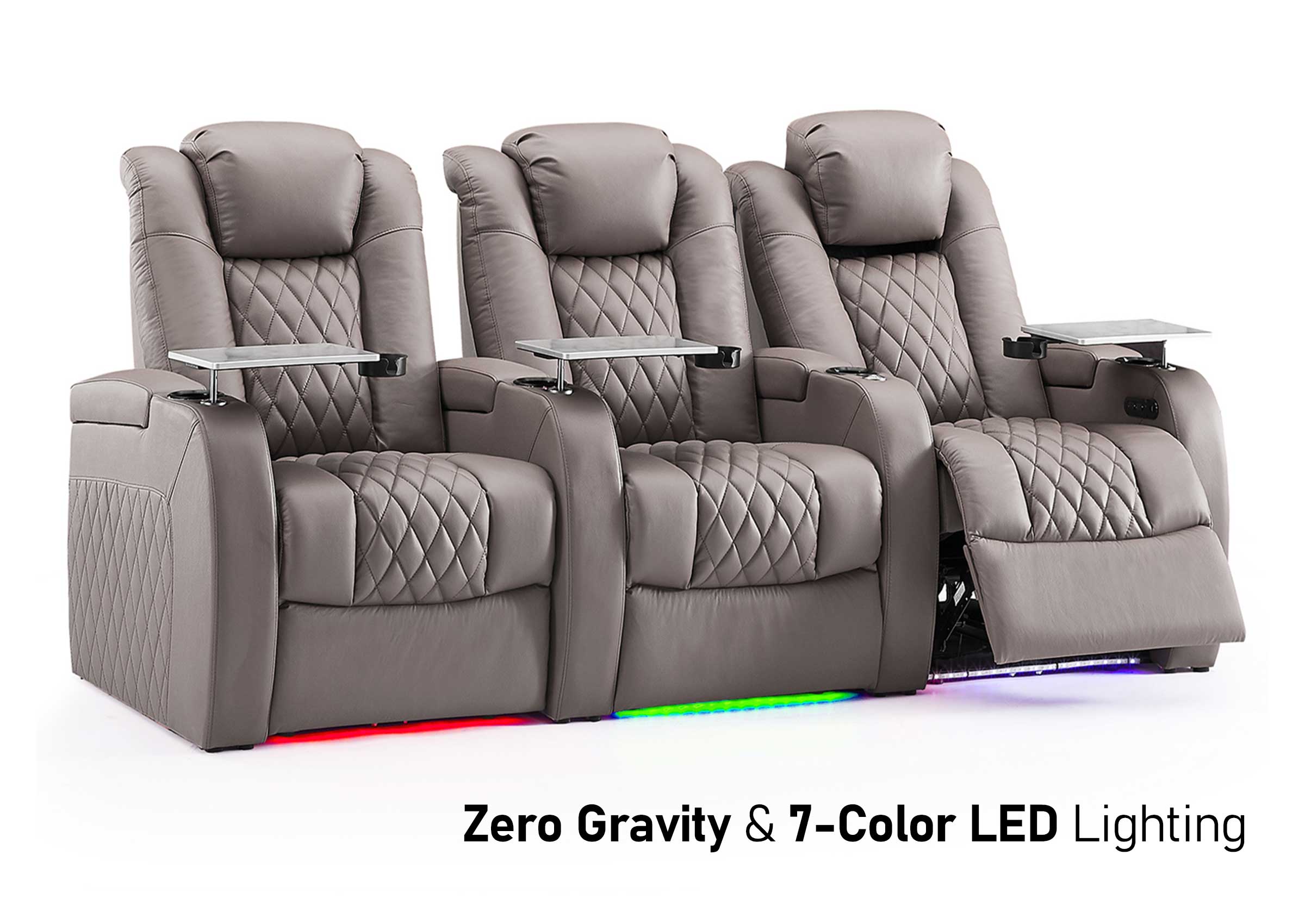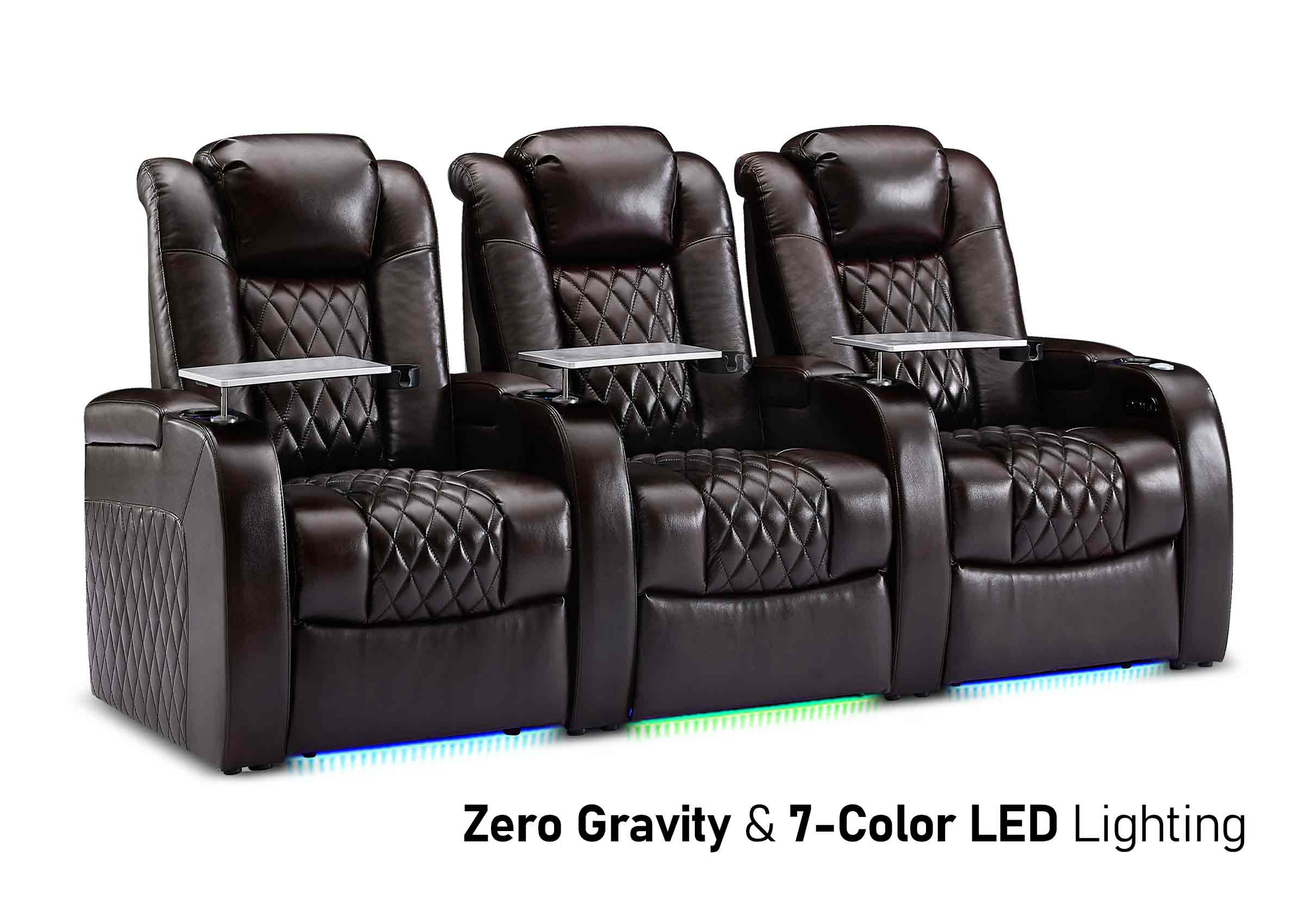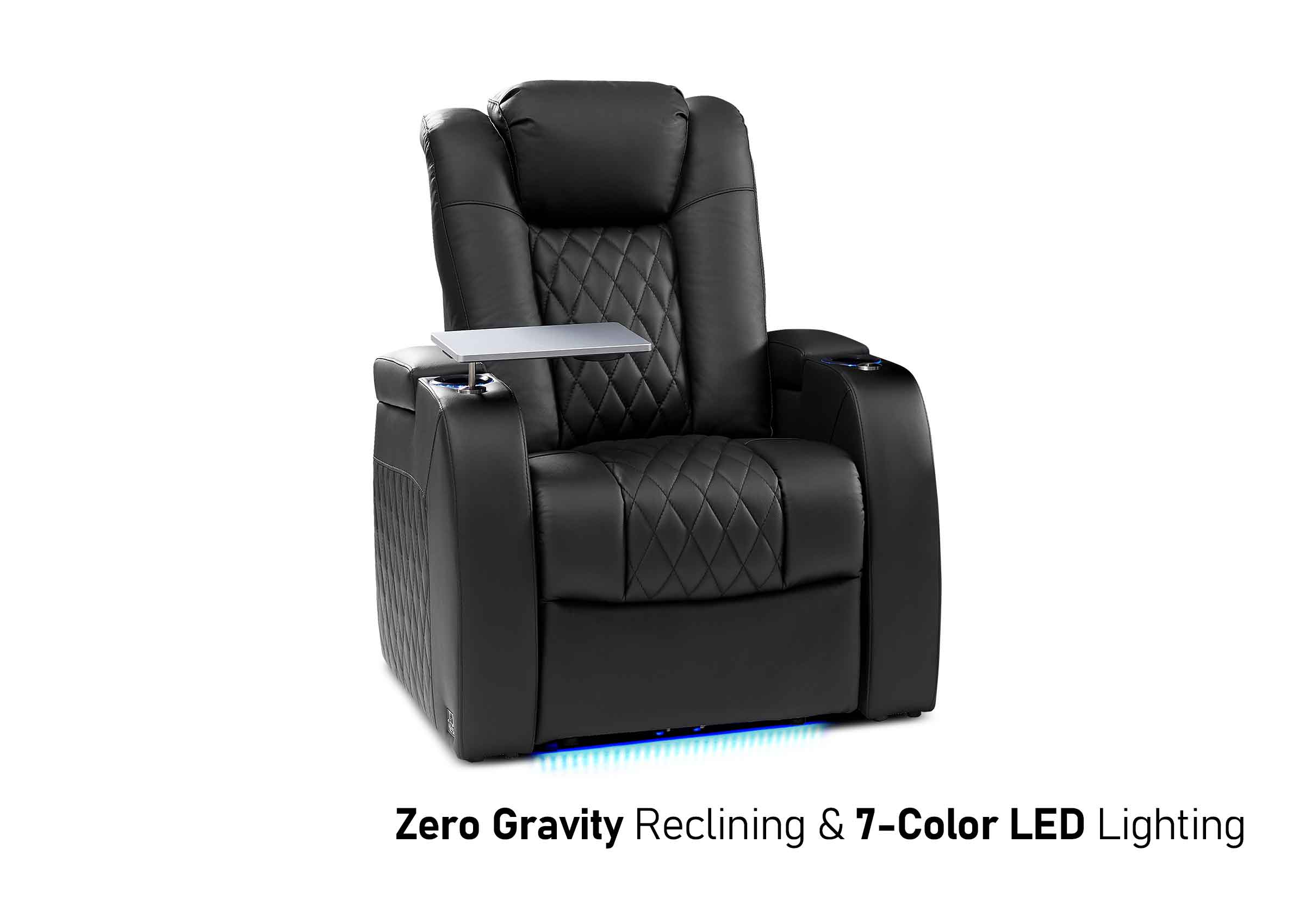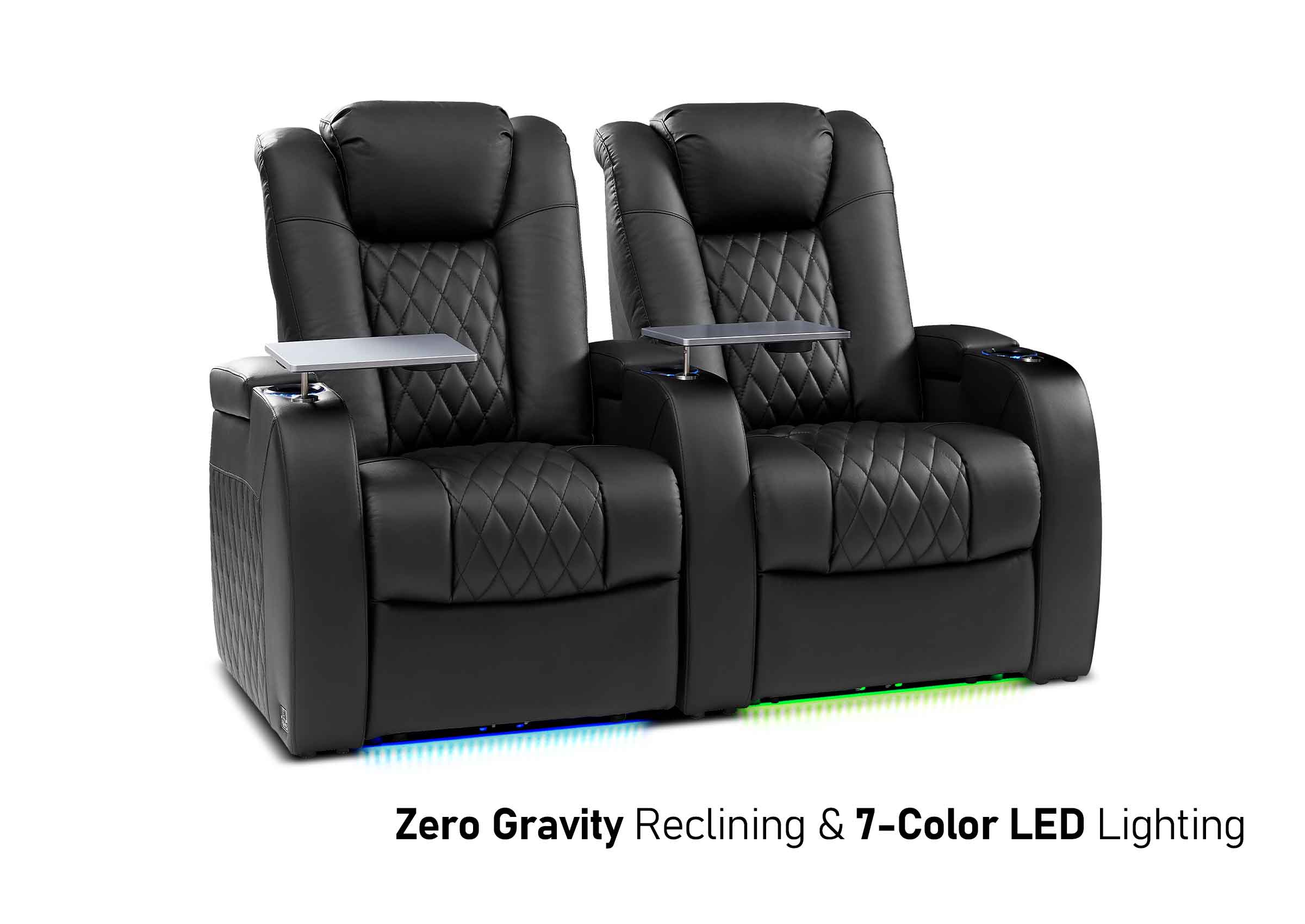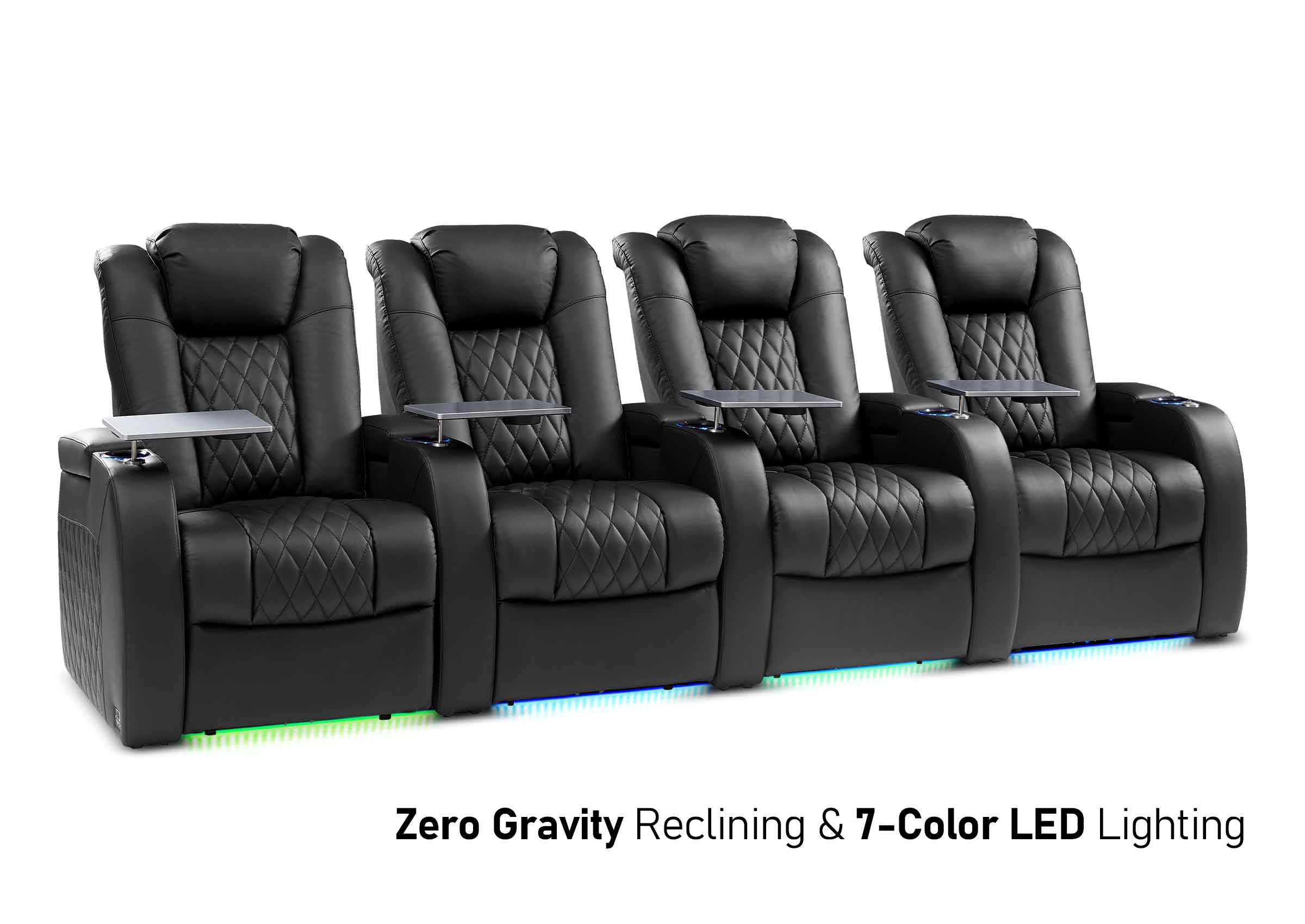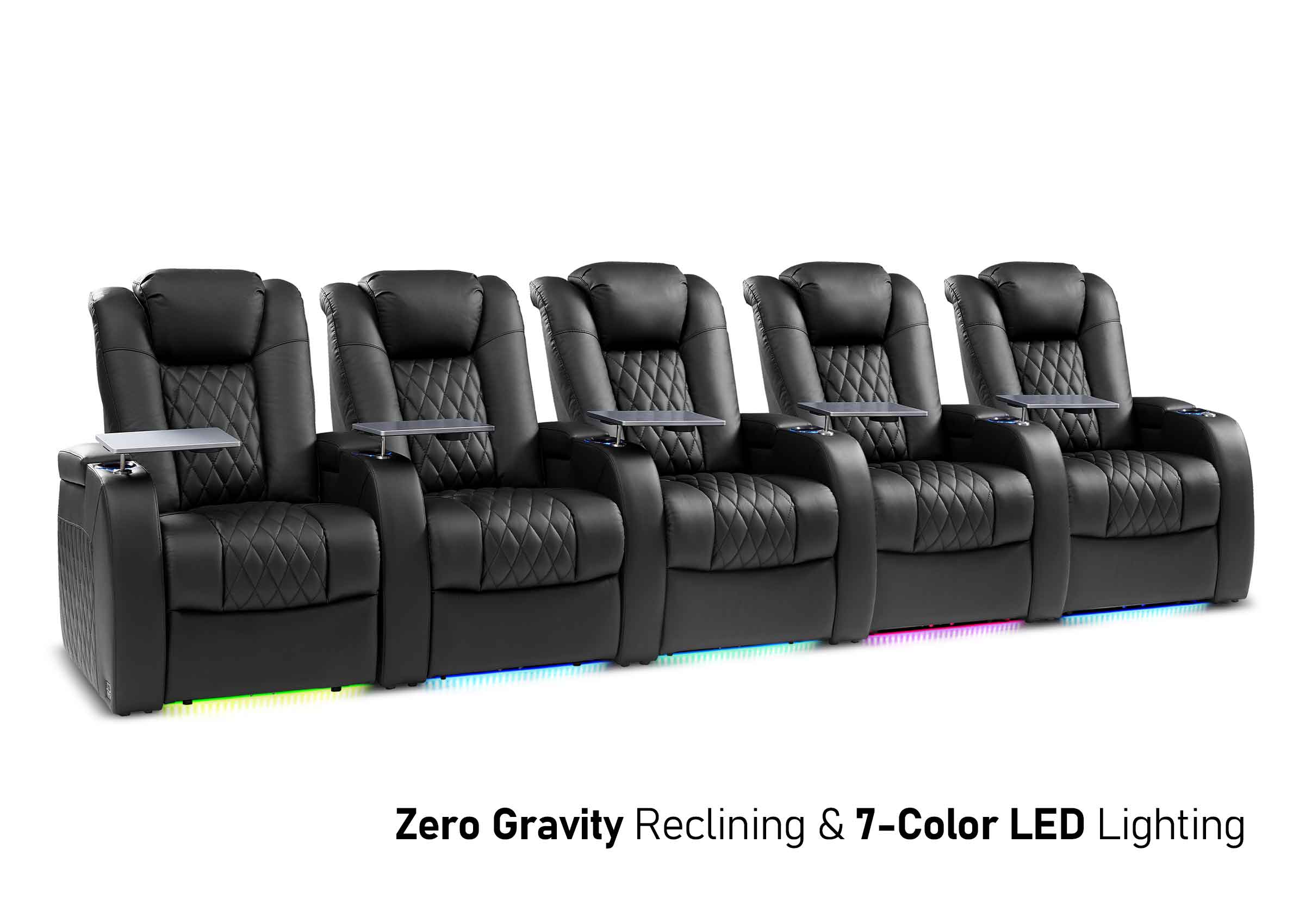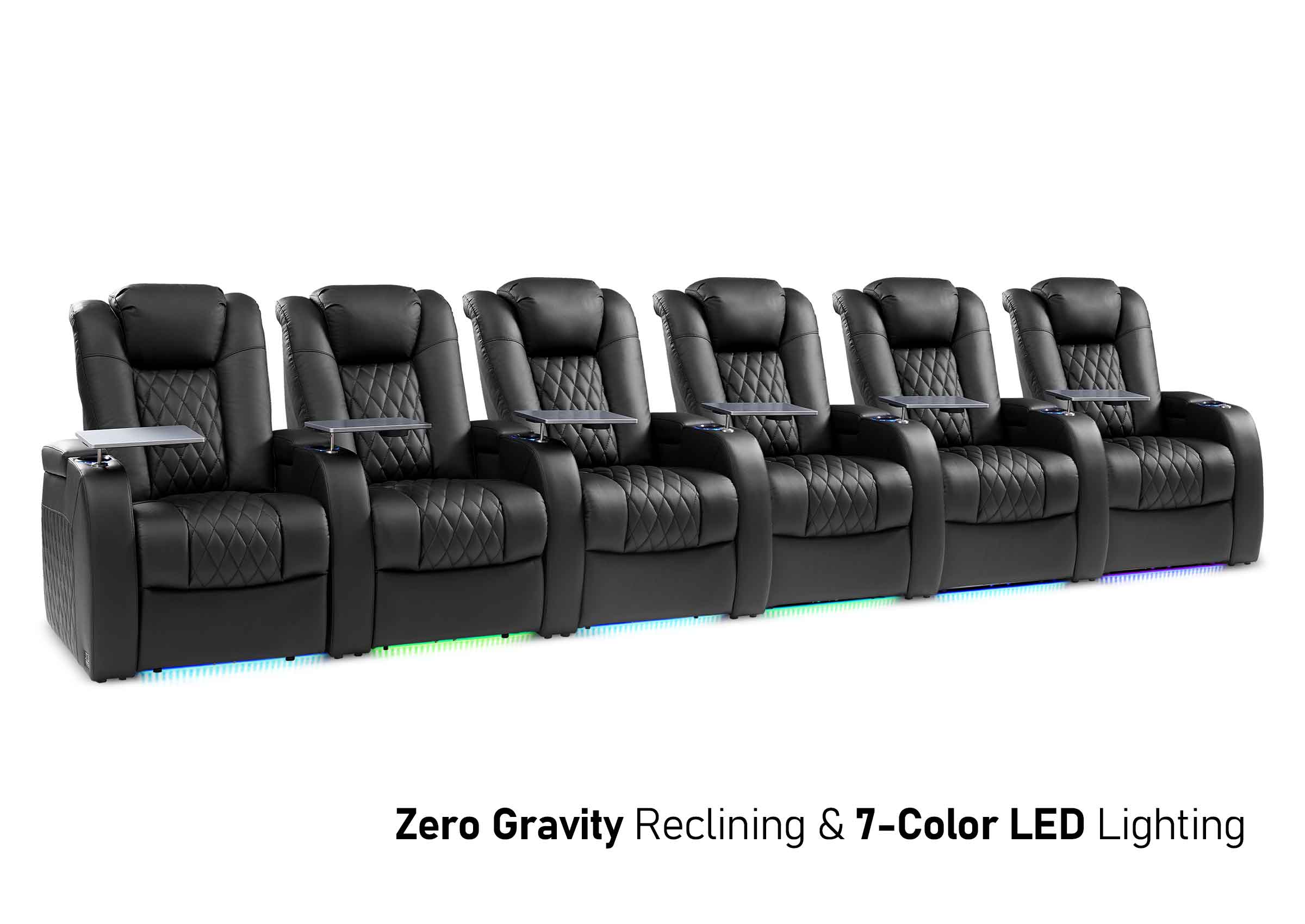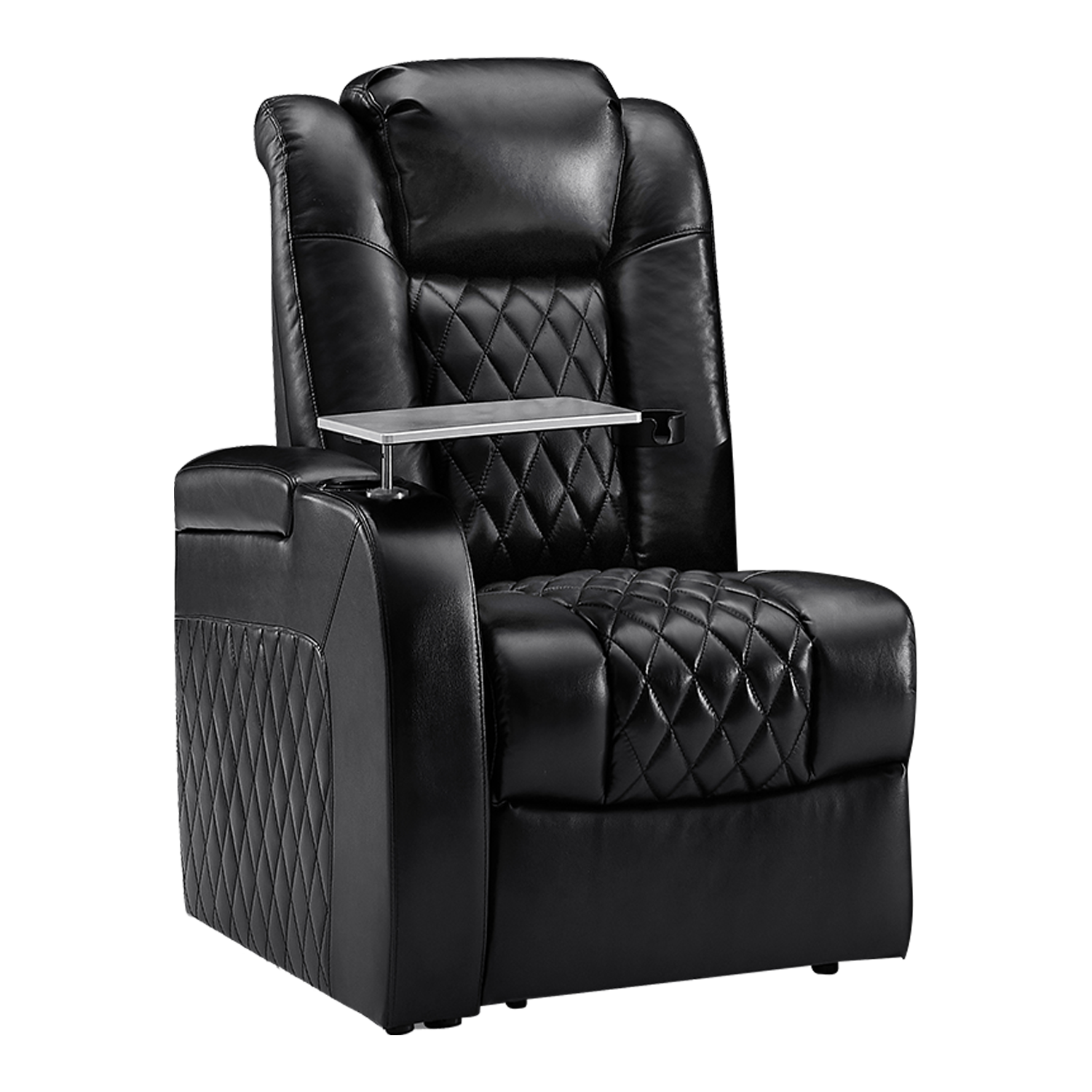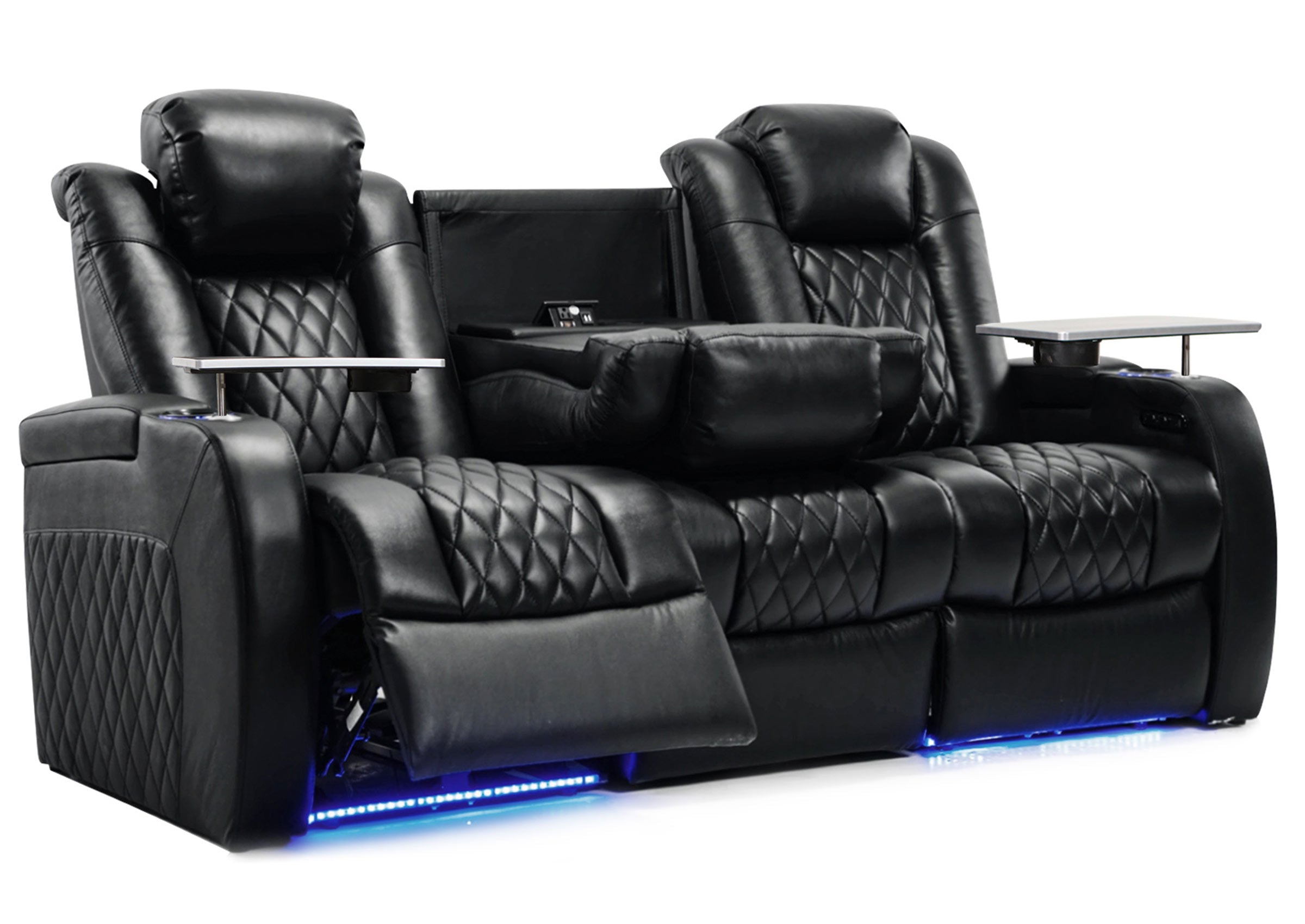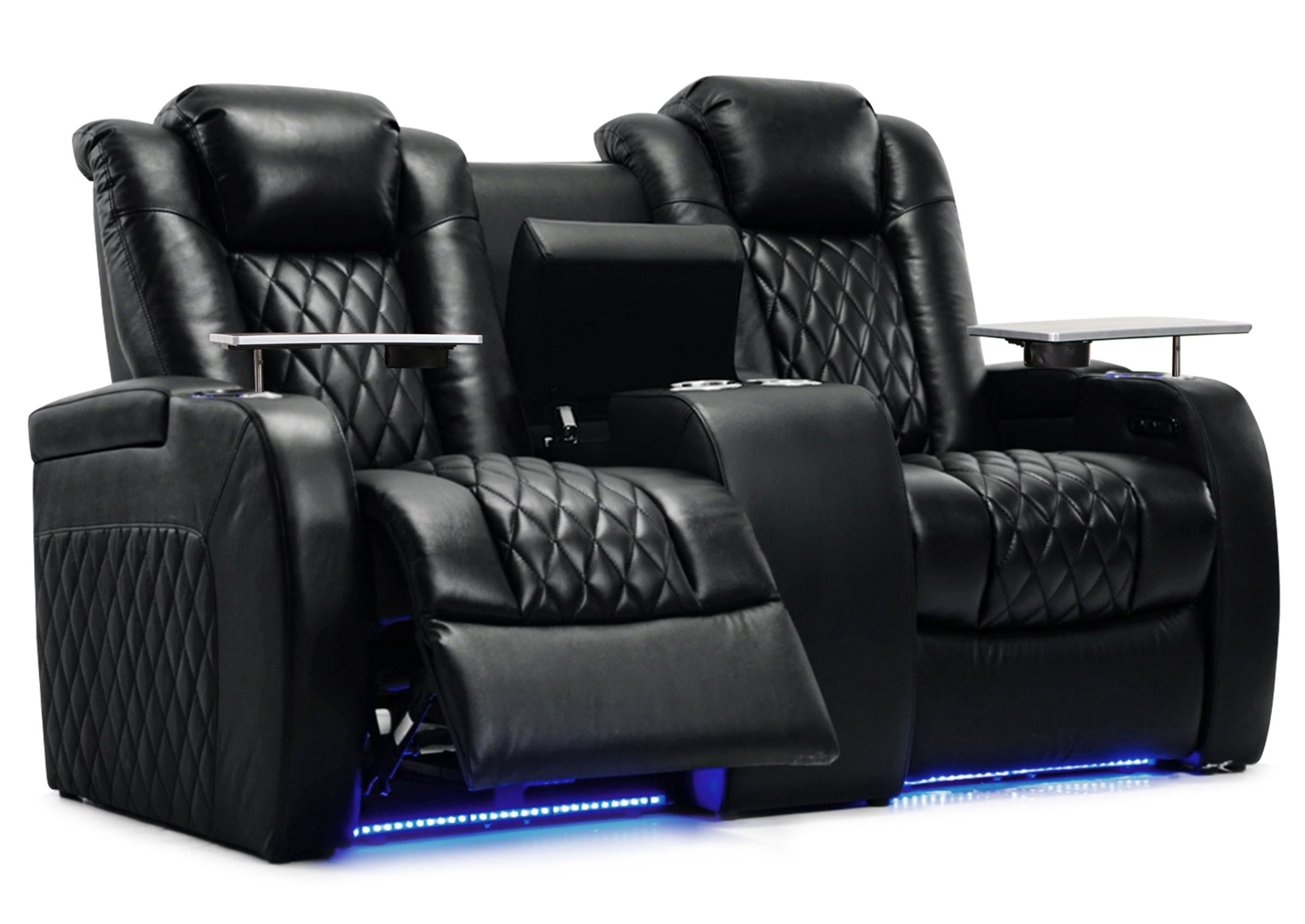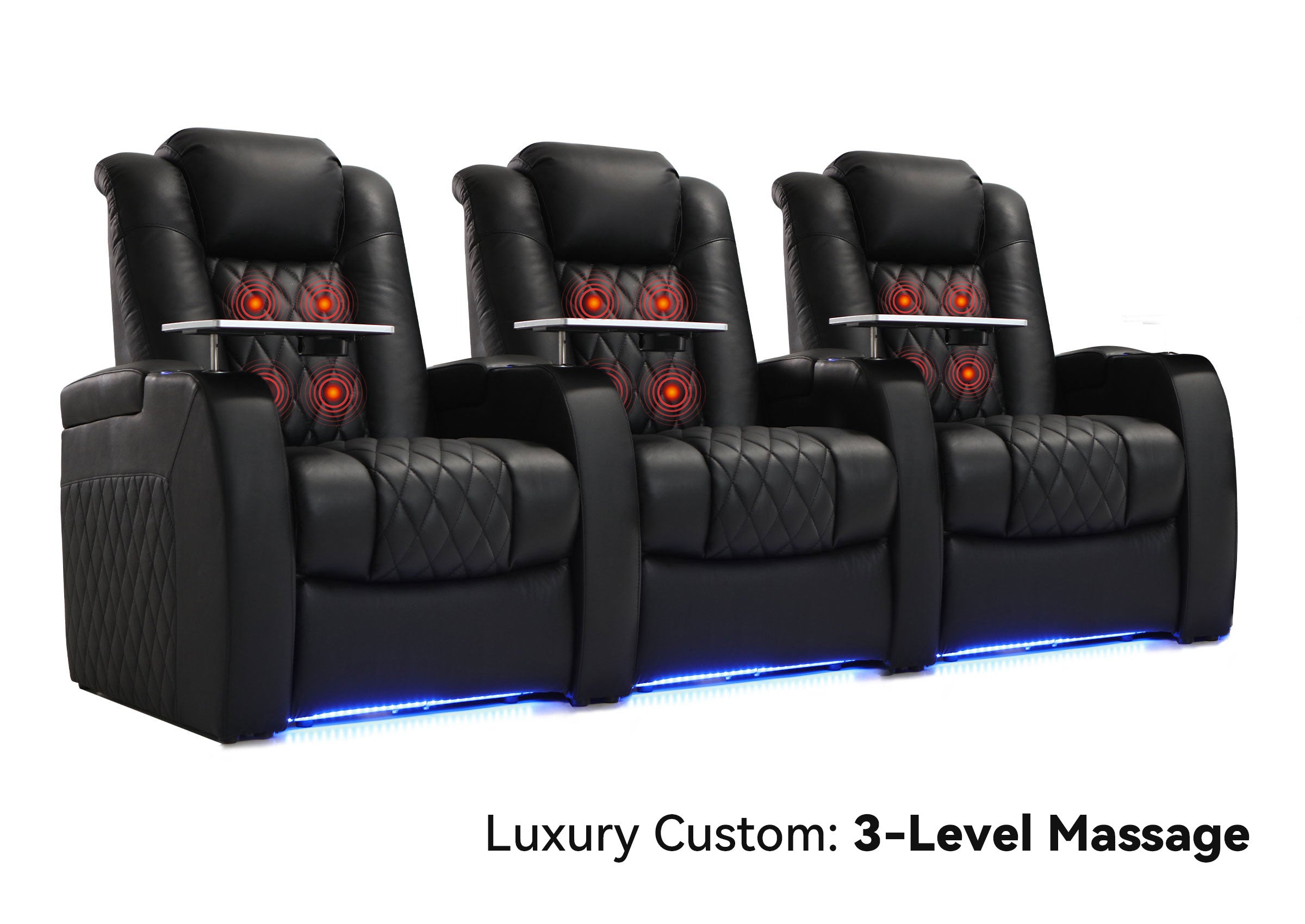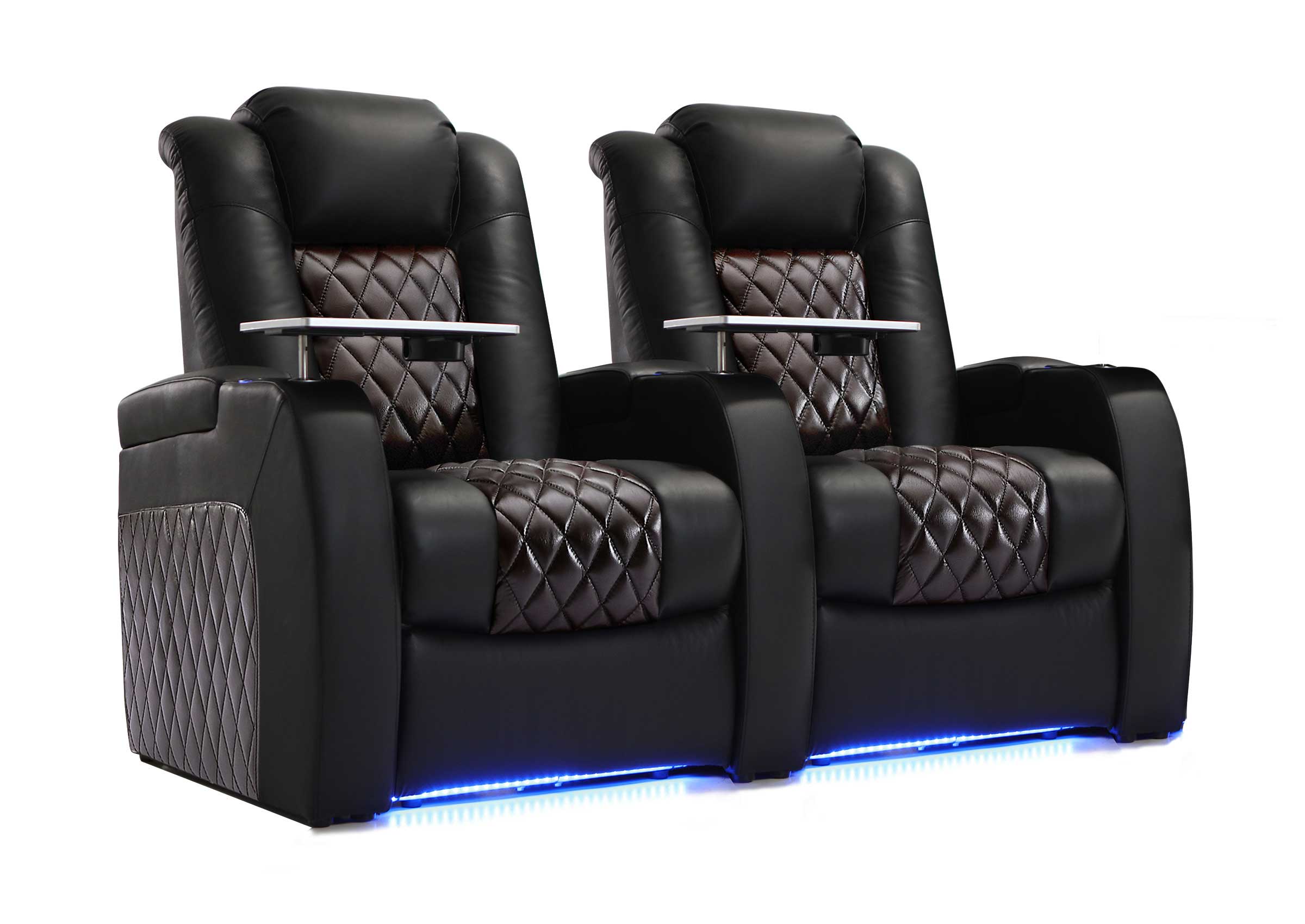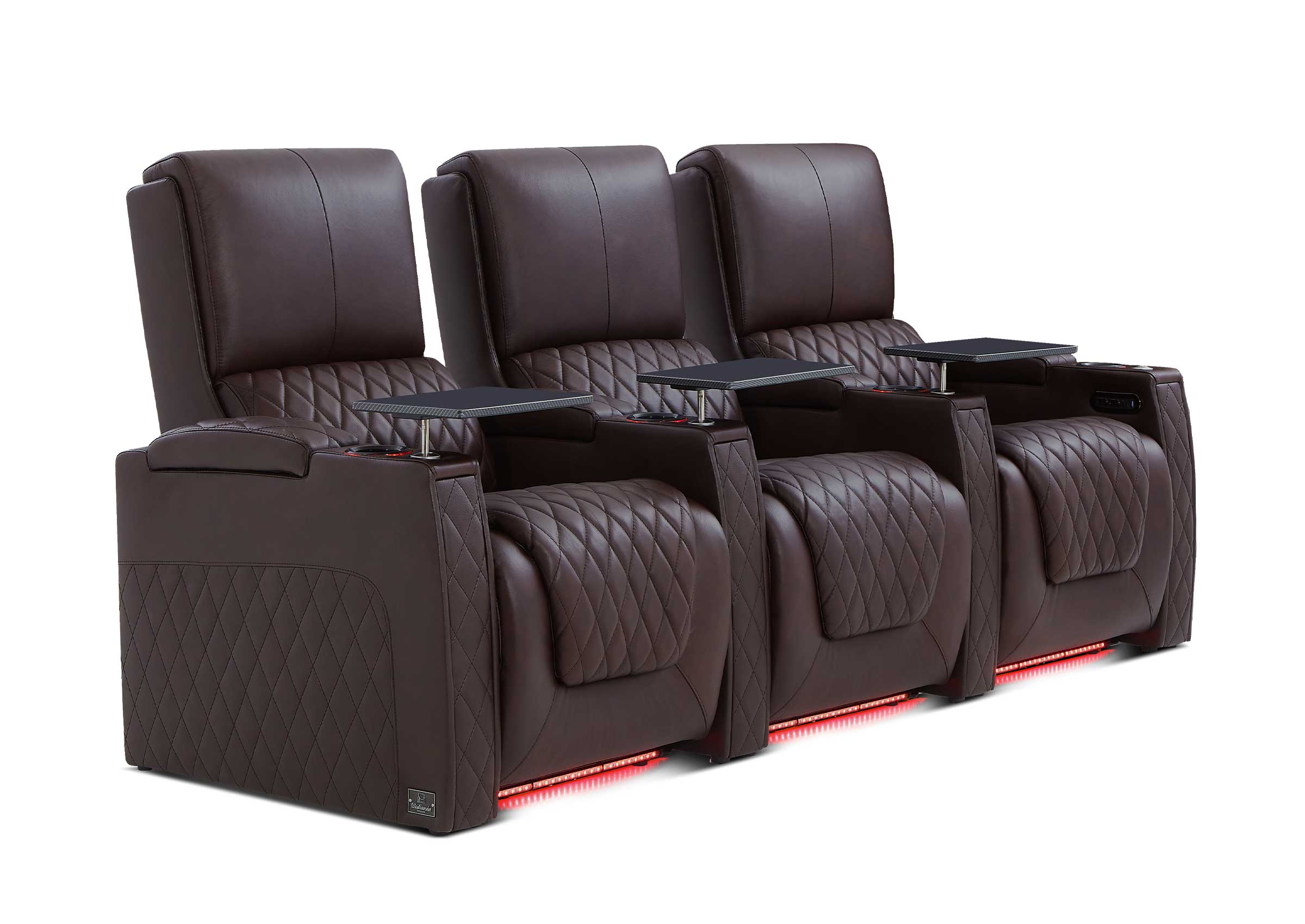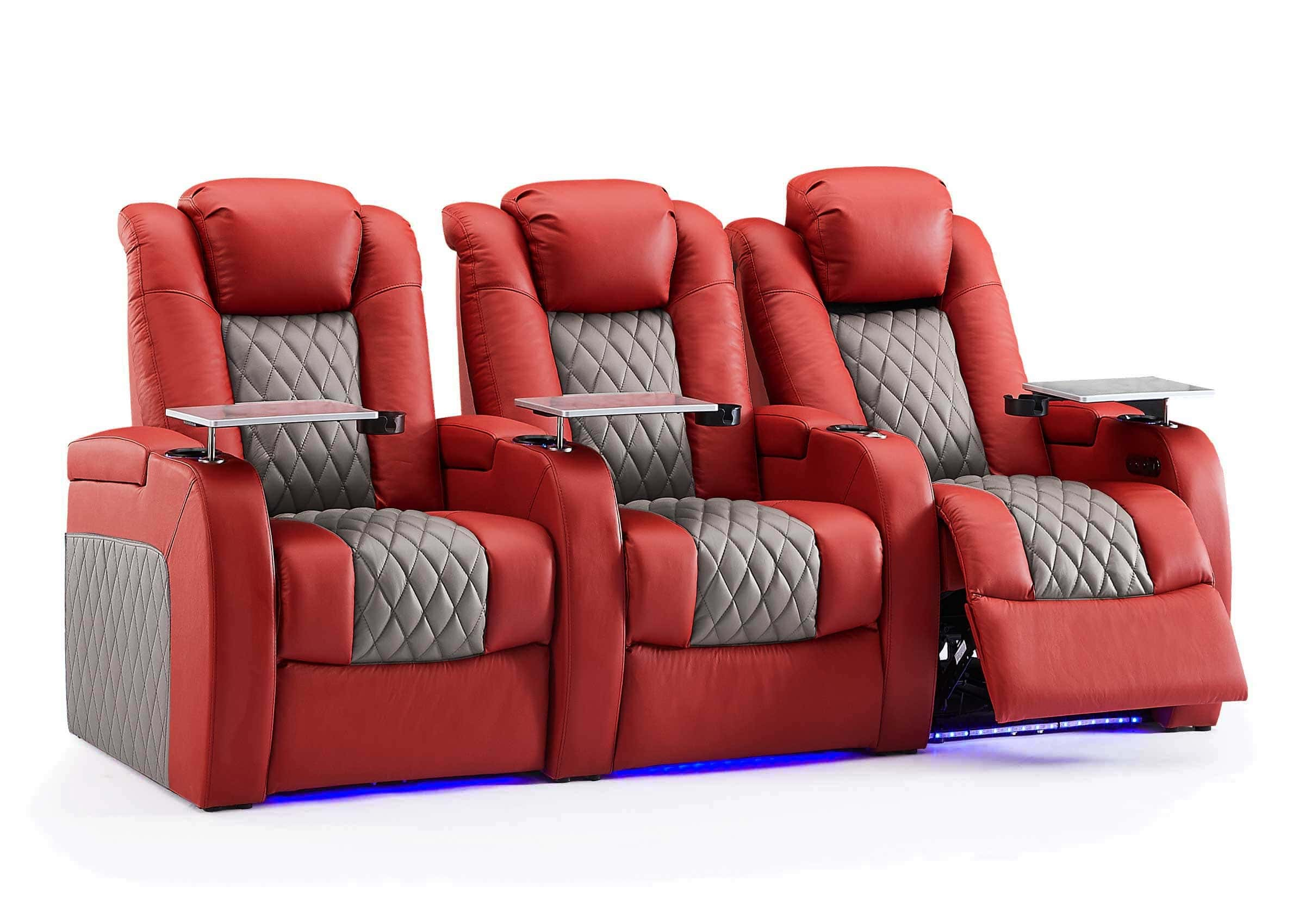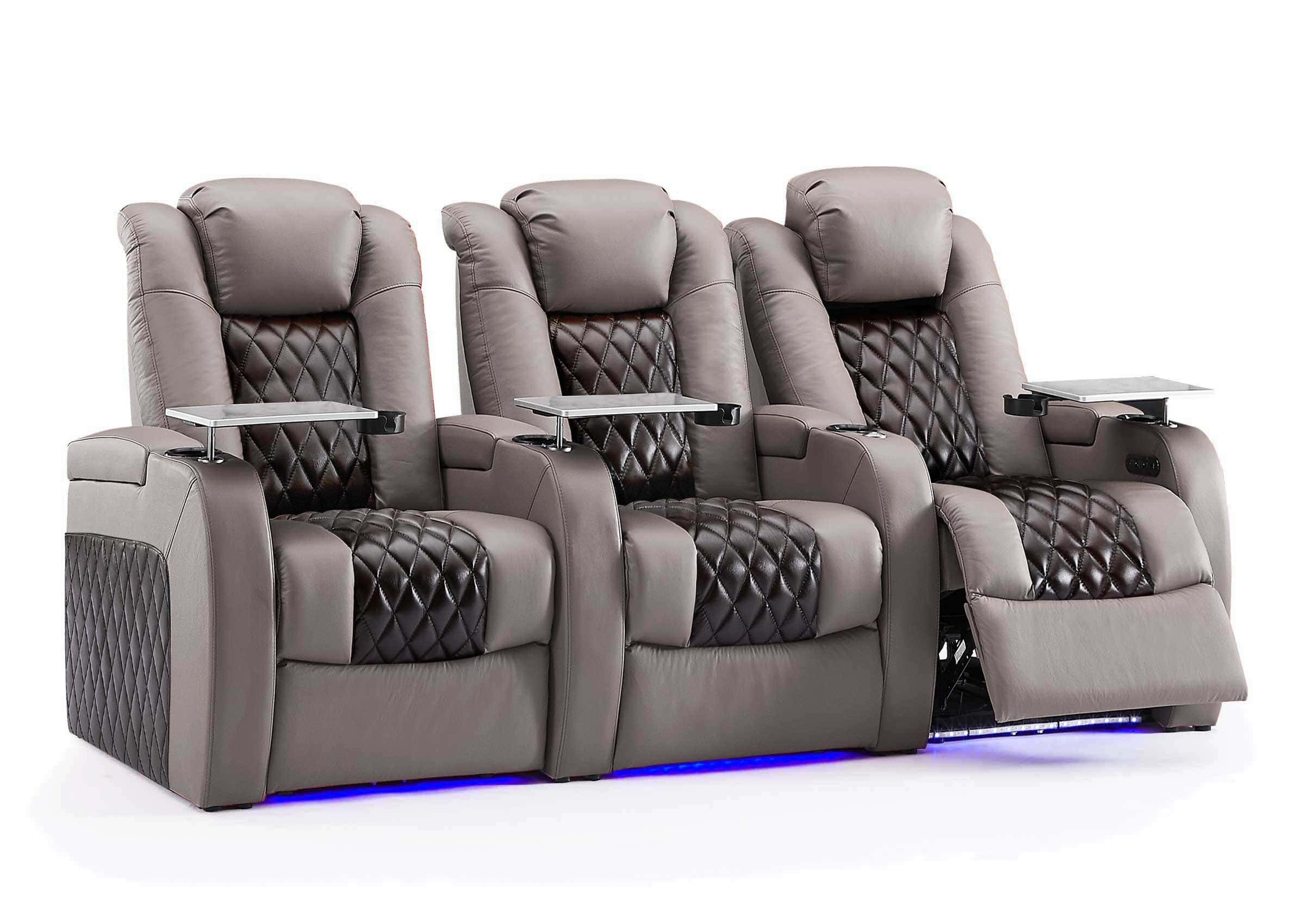Everyone loves a true movie night, but not everyone has a room set aside just for a home theater. A good thing is that you don't need one. The living room you use every day could easily be turned into a great place to have fun. You can make your living room a great place for both working and watching movies by making a few smart changes to your home theater setup.
Planning Your Living Room Home Theater Layout
Take a fresh look at your living room as the first step. The goal is to have a room that feels normal during the day but can easily be turned into a theater at night. Your screen wall is the first thing you need to do. Too much light will be your worst enemy, so make sure that wall doesn't get too much direct glare from windows.
If your living room's big windows are part of its charm, you need to get a good set of blackout curtains. They are very important for getting that dark theater feel at night and make watching movies during the day a lot better. First, get a tape measure and write down the room's measurements. Pay special attention to how far the screen wall is from where you'll be sitting. After you get this number, it will help you pick the right screen size and speaker setting. Watch how people move around the room too. You don't want a main pathway crossing right in front of the screen. A little planning now will save you a lot of trouble later on, and every new piece of gear will make the room better instead of just making it more crowded.
Choosing the Best Screen for Your Home Theater
A large television or a projector are the two main options when it comes to the screen, which is the visual center of your arrangement.
TV vs. Projector: Which is Right for You?
-
Televisions: The easiest way to get a great picture is to get a modern 4K TV. Because it has a lot of contrast, colors stay bright and clear even when the room isn't totally dark. This means that a TV is the best choice for a living room that can be used for multiple purposes.
- Projectors: A projector is the greatest way to get a big, movie-like impact. If the picture is 100 inches or bigger, it can feel like you're at a movie theater.

Perfecting Screen Placement and Viewing Distance
Whatever you pick, placement is key. The middle of the screen should be at eye level when you're sitting down. When you follow this simple tip, you won't have to strain your neck to watch movies for hours on end. Most of the time, you should sit about 1.5 times the screen's height away from it. That's about 8 feet for a 65-inch TV.
Setting Up the Right Audio
If you go to a show with earplugs in, you won't get the full experience of a great picture. The speakers that come with your TV can't give you the depth and detail that brings a movie to life.
Soundbars vs. Surround Sound Systems
A speaker is the easiest and most noticeable way to improve the sound in a living room. A lot of the time, it comes with a wireless subwoofer to handle the bass. This makes speech clearer and action scenes more powerful right away. Next up is a full surround sound system, which will fill you with music all around you. When speakers are set up all over the room, sound comes from every direction, putting you right in the middle of the action.

Don't Forget Room Acoustics
And don't underestimate the room itself. The acoustics of your living room play a huge role in how your system sounds. Soft things like area rugs, plush furniture, and even your curtains help absorb sound, preventing echo and making the audio clearer.

The Ultimate Guide to Home Theater Seating
While the couch in the living room might be good for a half-hour comedy, it's not so great for a three-hour film. That's why there are special seats for home theaters. They can make a long movie less of a challenge and more of a treat.
Why a Home Theater Sofa Beats a Regular Couch
Well-made home theater sofas have supportive cushions and a comfortable design that will keep your back pain at bay. To make moviegoers feel even better, they have things like:
- Built-in cup holders to prevent spills.
- Hidden storage consoles for remotes and snacks.
- USB charging ports to keep devices powered up.
- Modular designs to fit any room size or shape.

The Luxury of a Power Recliner
A power recliner is the best choice for the utmost in customizable comfort. You can find the best position for your back and head by pressing a button and adjusting your position. Everyone can have the best seat in the house, because it's made just for them.
Setting the Mood: Home Theater Lighting and Ambiance
When the big parts are set up, it's the little things that make the theater experience great. The right lighting can make a room feel very different. Getting dimmer switches instead of regular light switches is a small change that will make a big difference. They let you dim the lights just like in a movie theater.
A tangle of wires is the fastest way to break the illusion. Taking a little time for cable management with ties or sleeves keeps the space looking clean and intentional. A universal remote is another great way to cut down on clutter, letting you control everything from one device. These finishing touches are what elevate the space from just a living room with a big TV to a genuine home theater.

Bring the Big Screen Experience Home
A great place to watch movies doesn't have to take up a lot of space or cost a lot of money. Your living room is already ready to be great. You can make a home theater that fits your needs and gives you a great escape whenever you need one by adding great visuals, immersive sound, and really comfy seats.
Frequently Asked Questions (FAQs)
1. How can I improve my home theater sound on a budget?
The least expensive way to make your sound much better is to get a soundbar with a portable subwoofer. You can also improve the natural sound of your room for free via placing rugs and soft furniture in smart ways.
2. What is the best seating for a small living room home theater?
For smaller spaces, look for a wall-hugger power recliner or a modular home theater sofa. These designs provide full reclining comfort without needing a lot of space behind them, maximizing your room's layout.
3. How do I deal with window light in my home theater?
The best options are blackout curtains or cellular shades that block light. Using them with a projector is a must since they let you to adjust the surrounding light, which in turn improves the visual contrast.








